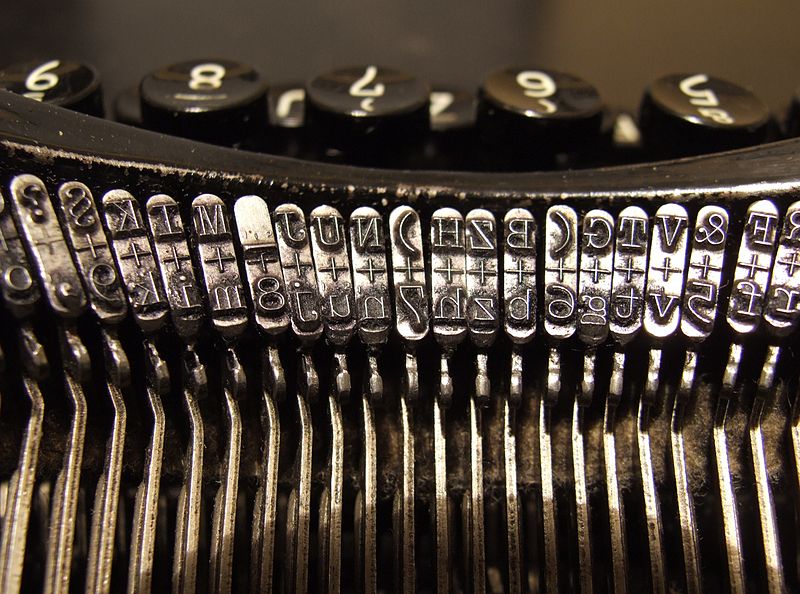The typewritten beats reminded me of youthful efforts at achieving perfection. I typed stories for a short fiction course on a mechanical typewriter.
My typewriting was obsessive, or compulsive, to varying degrees depending on what I perceived to be the quality of the story.
Quality is elusive. I knew what quality was not - quality was not gobs of correction fluid on heavy paper or jarring erasure marks on cockle-finished onion skin paper.
Back to fiction. If I thought I had conjured up a particularly good story, my relationship with the typewriter, and the act of typing, would often degrade from detached industrial efficiency, to controlled rage. If I committed one typo, I'd yell fuck-me, rip out the page, crumble it into a tight ball, and wing it across my two-room apartment.
Writing long-hand on canary-colored, college-ruled paper, I would often finish a story in short order. If the story possessed the elusive quality I sought, I'd be compelled to type into the wee hours of the night, if necessary, to produce immaculately typed pages. A few hours discarding and re-typing would reduce me to a production rate of two or three words per minute.
During those times, the typewritten words felt like I had chiseled them letter-by-letter like I was Michelangelo revealing the Pietà from a slab of Carrara marble.It seemed to me that a good story deserved flawlessly typed pages. The same is true today, only the medium and the rules of flawlessness have changed.

No comments:
Post a Comment
Thank you for commenting.